I am trying to compile a script utilizing multiprocessing into a Windows executable. At first I ran into the same issue as Why python executable opens new window instance when function by multiprocessing module is called on windows when I compiled it into an executable. Following the accepted answer I adjusted my script such that
from multiprocessing import freeze_support
# my functions
if __name__ == "__main__":
freeze_support()
# my script
And this again works perfectly when run as a script. However, when I compile and run it I encounter:
Where I've underlined in green part of the error. This specific line refers to
freeze_support()
in my script. Furthermore, it is not actually encountered on this line, but when my script goes to multiprocess which is something like:
p = multiprocessing.Process(target=my_function, args=[my_list])
p.start()
p1 = multiprocessing.Process(target=my_function, args=[my_list])
p1.start()
p.join()
p1.join()
Is this an error in the multiprocessing module (specifically line 148) or am I misunderstanding the answer I linked, or something else?
I'll also note that the script does work correctly when compiled, but you have to click "OK" on an error message for every multiprocess that is spawned (quite a lot) and every error message is exactly the same. Would this mean i am improperly ending the process with the p.join()?
I've also tried the solution at Python 3.4 multiprocessing does not work with py2exe which recommends adding
multiprocessing.set_executable(os.path.join(sys.exec_prefix, 'pythonw.exe'))
to your script, yet this causes an error in the script form (not even compiled yet) of:
FileNotFoundError: [WinError 2] The system cannot find the file specified
Thanks for the help!
freeze_support documentation: https://docs.python.org/2/library/multiprocessing.html#multiprocessing.freeze_support
